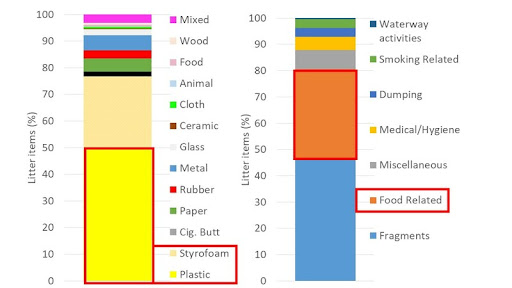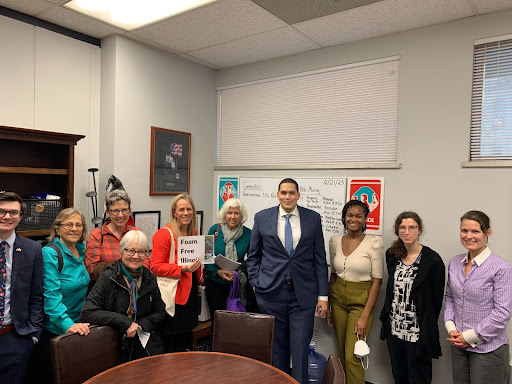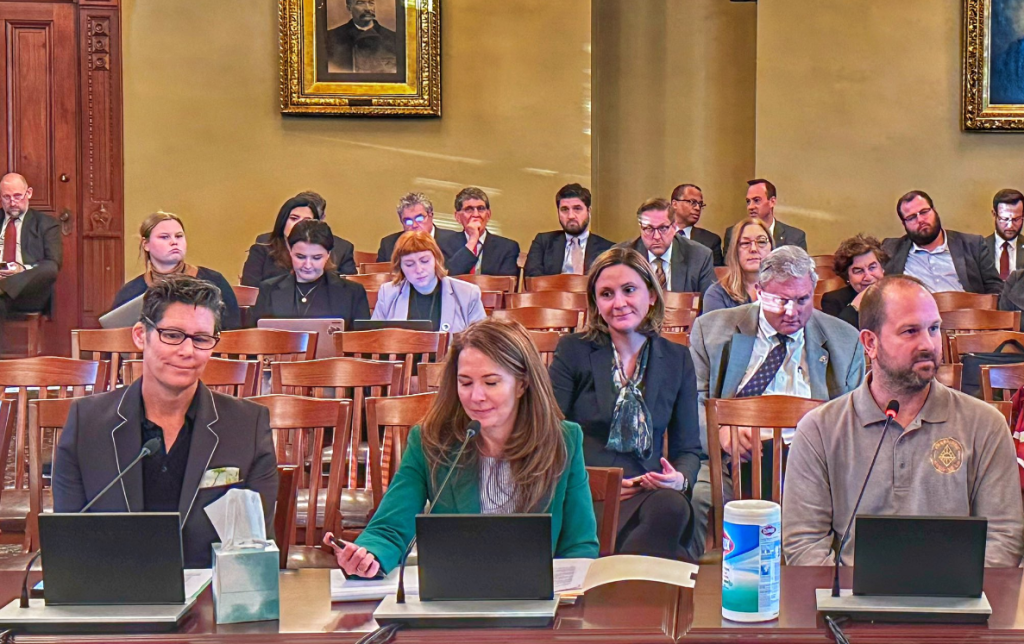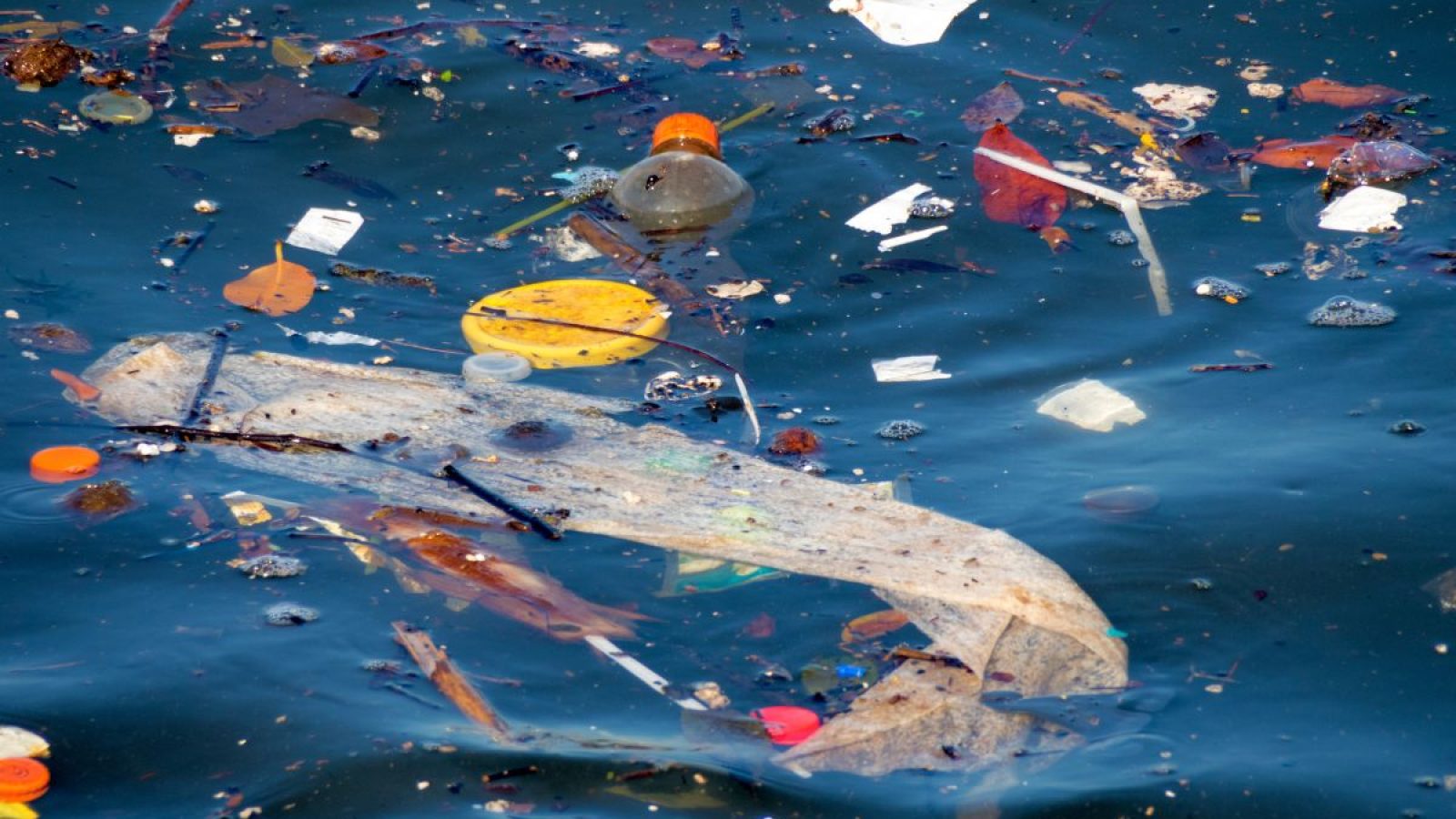By: Iyana Simba, IEC City Programs Director; Chelsey Grassfield, Friends of the Chicago River Policy Manager; Claudia Jackson, League of Women Voters-Chicago; Emily Kowalski, Outreach and Engagement Manager, Environment Illinois
By now, you’ve probably heard plastic is bad for the environment. For decades, we’ve known that these items are among the most common and harmful forms of pollution found in the environment. The EPA estimates that Americans throw away almost 70 million polystyrene foam (also known as StyrofoamTM ) cups every day. Polystyrene is amongst the worst of plastic because it is costly, inefficient to recycle, and is not biodegradable. It can take hundreds of years to break down in our waterways, parks, and landfills, and is harmful to human health and wildlife.
In recent years, and especially following the COVID-19 pandemic, single-use plastics have increased substantially. These disposable items–like plastic foam cups and containers, plastic grocery bags, plastic straws and utensils, plastic bottles, and plastic packaging– make up nearly half of our plastic use.
Litter is a persistent problem in waterways. In Chicago, Friends of the Chicago River’s Litter Free Task Force collects data during clean-up events and found the overwhelming majority of litter in our rivers is plastic and polystyrene food-related items.

Likewise, roughly 22 million pounds of plastic enter the Great Lakes every year. There, the plastic is broken into smaller and smaller pieces until it becomes microplastic, or pieces of plastic the size of a grain of rice or smaller and end up polluting our food and drinking water (including bottled water!).
Recent studies suggest humans ingest 5 grams of plastics a week. Styrene, a building block of polystyrene, is likely a human carcinogen, creating health risks in production, use, and disposal. While scientists are studying the impact of plastics in our bodies, they already know that chemicals added to plastics like phthalates, PFAS are known to disrupt hormonal activity and can cause diabetes, cancer, and reproductive disorders.
Bottom line: We can’t recycle our way out of this problem: over 91% of our plastic isn’t recycled, and less than 1% of polystyrene foam gets recycled. We need to get rid of the disposable “stuff” we don’t need.
So what’s the solution if it’s not more recycling?
Already, eight states–Maine, Maryland, Vermont, New York, New Jersey, Colorado, Virginia, and Washington– and roughly 200 cities and municipalities, including the District of Columbia, have enacted bans on polystyrene foam containers. This Illinois legislative session, IEC, along with the Illinois Coalition for Plastic Reduction, supports legislation introduced by State Representative Jennifer Gong-Gershowitz and State Senator Laura Fine to reduce the use of plastic foam cups and containers. If passed, HB2376/SB100 would prohibit retail establishments and restaurants from selling or distributing polystyrene foodware starting January 2024. It would exempt smaller restaurants making less than $500,000 a year and places and services that provide food to the needy (i.e. soup kitchens, Meals on Wheels etc.). Since passing in the House chamber, the bill makes its way to the Senate, marking one step closer to the Governor’s desk! However, the fight is not over! Show support by taking action–fill out our action alert.

Chicago Effort
Efforts to reduce plastics have also been made at the local level. In early 2020, Chicago 32nd ward Alderperson Scott Waguespack introduced the Plastics-Free Water ordinance, which would have required restaurants to provide single-use plastics by request only, allow customers to bring their own cup, eventually require reusable or compostable foodware, and immediately ban restaurants from selling or providing polystyrene foodware.
The ordinance was introduced with a lot of interest, however, attention quickly shifted to the COVID-19 pandemic response. At that time, with not much known about the virus, the plastic industry argued for increased use of single-use plastics to prevent the virus’ spread. As restaurants struggled to stay open, many began purchasing individually wrapped utensils and moved away from condiment bottles to packets.
The following year, in 2021, Chicago passed a disappointing single-use plastics ordinance that failed to go far enough to curb plastic pollution and did not include a ban on polystyrene takeout containers and drinking cups. At the same time, Aldersperson Waguespack introduced a substitute to the Plastics Free Water ordinance that would require restaurants to provide single-use plastics by request only and prohibit restaurants from selling or providing polystyrene foam food containers. Alderperson Waguespack plans to bring back his substitute ordinance in the near future.
What's next?
Eliminating polystyrene is just one piece of the fight to reduce single-use plastics and overall waste. Illinois still needs better recycling and composting programs that are easily available to consumers. Of the 19 million tons of garbage produced by Illniois each year, only 37% gets recycled. Similarly, only a small fraction of organic and food waste is diverted from landfills. More importantly, the responsibility shouldn’t just fall on individuals. Further legislation is needed to make the marketplace accountable for providing sustainable products. In the meantime, please support the passage of a statewide polystyrene foam ban!


